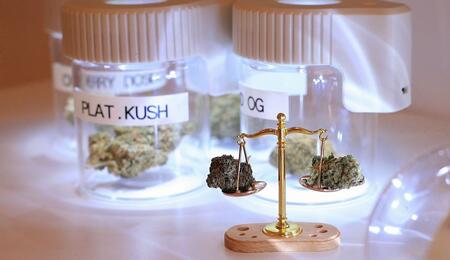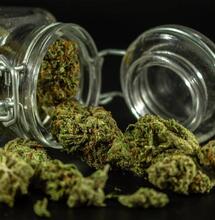What Impact Global Cannabis Regulations Have in Europe?

Regulatory developments in the cannabis sphere are happening at a rapid rate, putting a strain on policymakers all around the globe to adjust to the new reality. It’s no easy task and politicians are typically divided on whether they should control cannabis, if they should legalize or not. In Europe, a lot of the developments are tied to what a single country would do. Especially among the 27 EU members who are complicit in laws about free trade and movement of goods.
North America is miles ahead when it comes to establishing legal cannabis markets. For Europe it has been much more complex because of the laws of free trade to which EU member states are signatories. As a result, European countries that want to move toward cannabis legalization usually do that by launching pilot programs that aim to test and see how legal retail of weed might look like. The assessment is supposed to help them make the next steps.
So far, around 20 European countries have introduced some form of legislation to permit the medicinal use of cannabis. From the UK to the Balkans, people can find all kinds of medicinal cannabis products, usually in pharmacies, including CBD-based oils, balms, creams, topicals, gummies and more.
Germany has stepped forward as the first big country on the continent to introduce legislation on recreational use as well. Its cannabis legalization model will likely influence at least some of its neighbors. Adult-use cannabis is also legal in Malta and Luxembourg, which are smaller markets and easier to control. Other countries such as Switzerland and the Netherlands have active pilot projects in place, allowing cannabis purchases for registered program participants in select jurisdictions.
Why Does Europe Need to Regulate Its Cannabis Industry?
Cannabis is the most widely used drug in the world. It’s also the most widely used drug in Europe. Statistics suggest that about 84 million people living in EU countries have at some point at least once tried cannabis. More than 22 million have used cannabis in the last year. The fact that people smoke weed just the way they drink alcohol is indisputable.
Perhaps the more significant reason why Europe should speed up regulatory changes is that cannabis is becoming more potent every year. Also, there’s the broad variety of products being available on European illicit markets. Not only flower, but also edibles, oils and vapes. Reports say that average THC potency in marijuana has doubled between the early 2000s and 2020 in Europe. It’s even more in the U.S., where at the same time there’s the lingering problem with THC inflation.
Controlled market is the answer, and perhaps the example which European countries could follow is state-level legislation as seen in the U.S. But the situation is different on the ground.

What Kind of Regulation Works and What Doesn’t on the European Market?
In the U.S., it is not legal to take cannabis from one state to another. By law, you can only purchase and use a product in the state where it originates. You cannot travel with it to another state, you are not supposed to board a plane with it. However, under EU’s free trade laws this would simply not apply. You can buy weed in the Netherlands and freely travel to Belgium, without passing any custom controls and checks. Because there’s none.
A regulatory model that seems to be working pretty well for European countries is cannabis social clubs. Social clubs originated in Spain, a country which does not even have official legislation that permits the adult-use of weed. Clubs typically function via membership where each member receives a monthly allowance of weed upon settling a fee. The model has seen success in other countries, too. It has been adopted in Malta, the first EU member to officially enact recreational legalization of cannabis.
As a model, cannabis social clubs have spread throughout the world, and it’s also in the recent German regulation. The very idea that clubs were accepted into German legislature (and are now in the stage of implementation) could set the course for lots of other countries that are hesitant to go with full-scale legalization.
A second model accepted in Europe is pilot programs. Pilots are currently underway in the Netherlands, in the cities of Breda and Tilburg, and in Switzerland, in Zurich and Basel. Czechia and Germany as well consider pilot programs. The regulatory option with this one is to permit limited retail while conducting a scientific evaluation and collect data on public health and safety.
Cannabis legalization in different U.S. states and in Canada has also led to other models for cannabis supply and use. Private commercial sales, state-managed sales, non-profit growing, and cultivation for personal use are some of them. Of that, again, not everything appears to be acceptable for Europe, but if we further see what’s in the legislation of every legal European state at the moment, home cultivation for personal use is definitely another one that passes.
What Effect Cannabis Policy Changes Most Often Bring?
Regulatory changes for cannabis no matter where they happen around the globe, including in Europe, do have an impact on both legal and illegal markets. One of the most common effects seen is product diversification. The US Hemp Farming Act of 2018 is a clear example to that end. The appearance of this bill resulted in the creation of an entire new market for hemp-derived intoxicating products, in particular in states that do not permit recreational use. Regulators have struggled to control these new products, with 2024 being so far a culmination point, or the year when “hemp and marijuana go to war” as nicely put by this Politico headline.
Dozens of states in the U.S. have moved to ban intoxicating hemp products. For fairly different reasons, banning hemp is currently a hot topic in Italy as well. A main producer of wellness hemp in Europe, Italian lawmakers have reached a point where they could potentially classify CBD as a narcotic and thus prohibit its farming in the country. The move could result in shutting down an entire sector that provides employment for 15,000 people. Right-wing or conservative governments, as the one Italy has at the moment, are showing affinity to reverse progressive cannabis-related policies. But any such action from the Italian government would be in breach with a ruling by the European Union Court of Justice which clarifies that CBD is currently not a subject to any narcotic control laws.
An effort to reverse cannabis regulatory progress might also happen in Germany now that the country faces the possibility of early elections in 2025. There are good chances that the Christian Democratic Union (CDU) returns to the Bundestag next year, a conservative party that would likely push at least some cannabis restrictions on its agenda.
It’s clear that regulatory changes are almost always directly connected to positions adopted by the political parties in power. The incoming Trump administration in Washington could break the pattern associated with conservative, Right-wing parties, and it could make progress with federal legalization regardless, but that remains to be seen.
The Most Significant Cannabis Policy Development Internationally in Recent Years?
There have been several important global developments in terms of cannabis regulation. If we should pick one most significant, it’s perhaps the rescheduling of cannabis in the UN drug control convention, as recommended by the World Health Organization, which took place in 2020.
The UN-level policy development proved to be crucial because it has encouraged countries around the world to take a softer approach on cannabis. It has paved the way for discussions at the EU and internationally about the potential reclassification of cannabis and cannabinoids. In the U.S., the outgoing Biden administration already did launch a federal review process that aims to put cannabis as a Schedule III instead of Schedule I drug under the Controlled Substances Act (CSA).
Also read on Soft Secrets:













